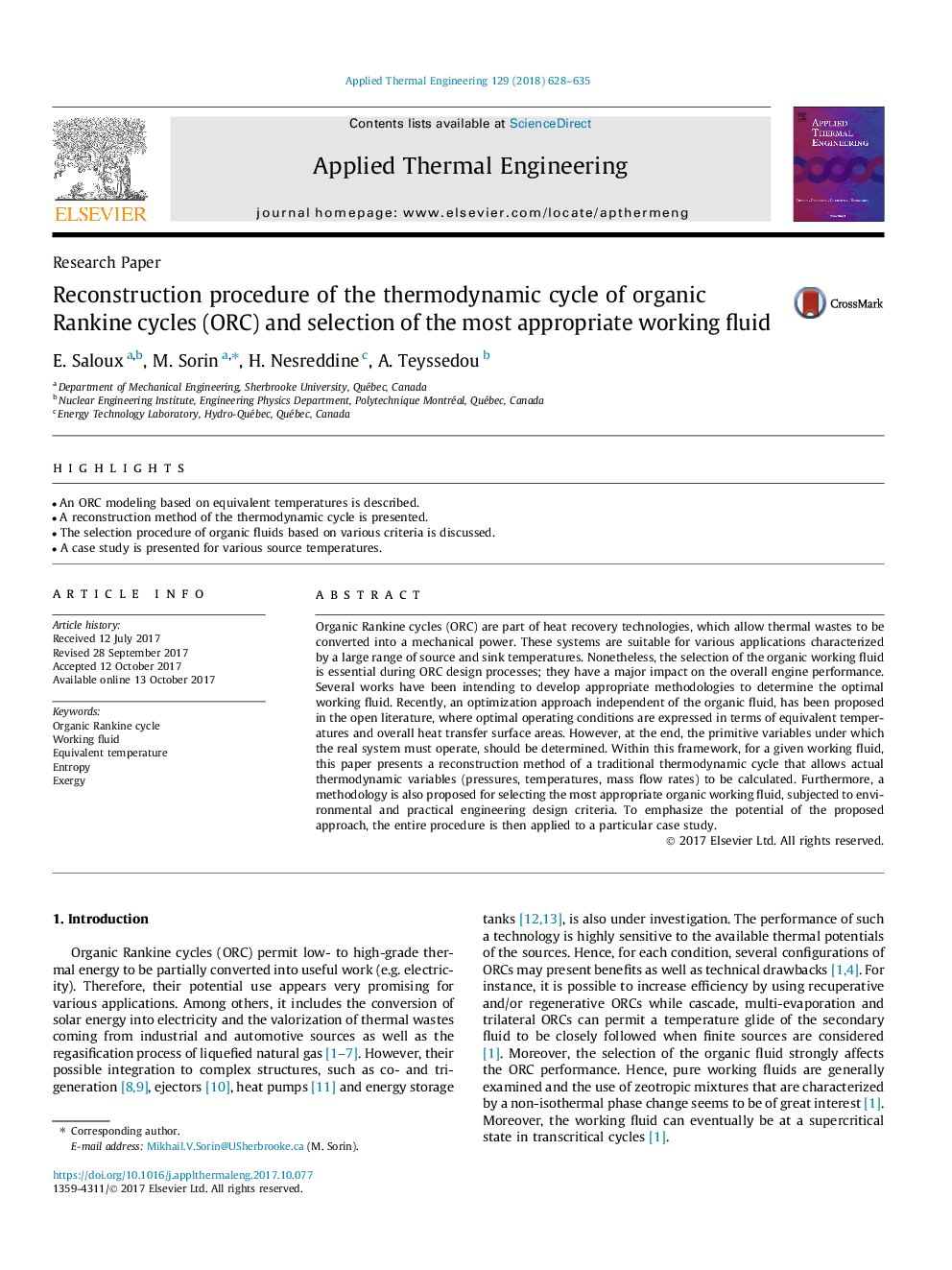| Article ID | Journal | Published Year | Pages | File Type |
|---|---|---|---|---|
| 4990368 | Applied Thermal Engineering | 2018 | 8 Pages |
Abstract
Organic Rankine cycles (ORC) are part of heat recovery technologies, which allow thermal wastes to be converted into a mechanical power. These systems are suitable for various applications characterized by a large range of source and sink temperatures. Nonetheless, the selection of the organic working fluid is essential during ORC design processes; they have a major impact on the overall engine performance. Several works have been intending to develop appropriate methodologies to determine the optimal working fluid. Recently, an optimization approach independent of the organic fluid, has been proposed in the open literature, where optimal operating conditions are expressed in terms of equivalent temperatures and overall heat transfer surface areas. However, at the end, the primitive variables under which the real system must operate, should be determined. Within this framework, for a given working fluid, this paper presents a reconstruction method of a traditional thermodynamic cycle that allows actual thermodynamic variables (pressures, temperatures, mass flow rates) to be calculated. Furthermore, a methodology is also proposed for selecting the most appropriate organic working fluid, subjected to environmental and practical engineering design criteria. To emphasize the potential of the proposed approach, the entire procedure is then applied to a particular case study.
Related Topics
Physical Sciences and Engineering
Chemical Engineering
Fluid Flow and Transfer Processes
Authors
E. Saloux, M. Sorin, H. Nesreddine, A. Teyssedou,
